Poor internet connectivity and incomplete syllabus: How would the Delhi University students appear for their online exams?
Most of the Delhi University students had left for their respective homes for the midterm break and got stuck due to the ongoing lockdown. Now they have to brace themselves up to appear for online exams -- which would define the course of their future -- with poor internet connectivity and incomplete syllabus
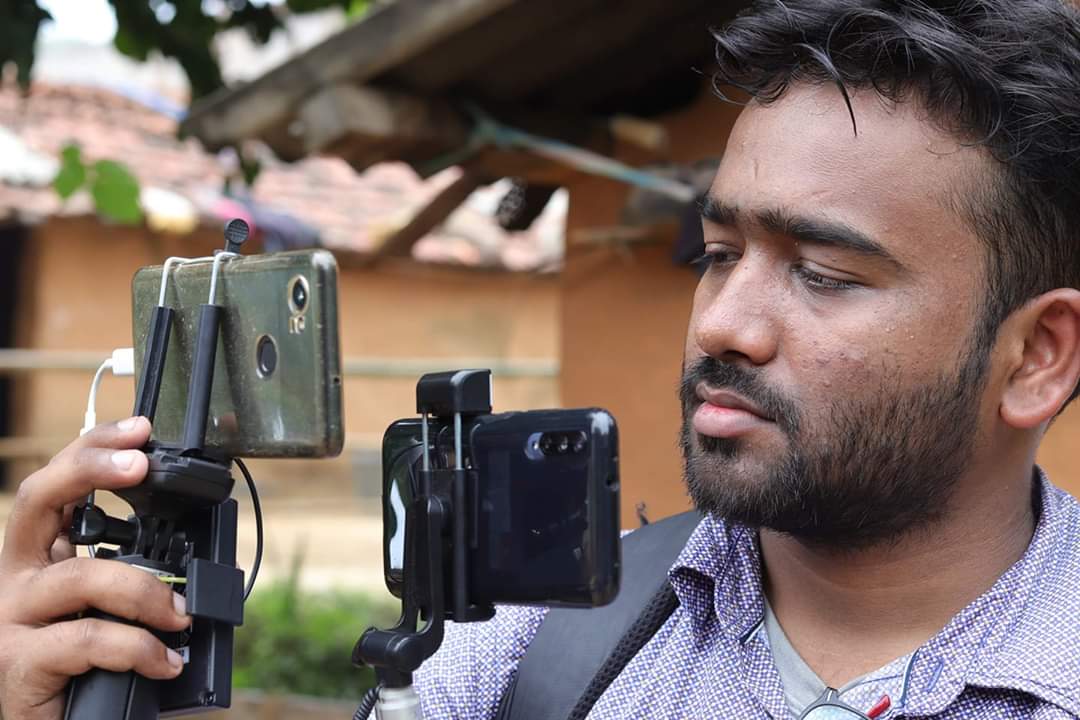
Jafar Sultan is a third-year BA (Bachelor of Arts) student with Delhi University’s Ramjas College and hails from Ramban district in Jammu and Kashmir. He had returned to his home during the mid-semester break that had begun on March 9, 2020. He could not return to Delhi because of the nationwide lockdown. Jafar is worried about appearing for the online examination declared by the university. He does not have adequate study material to prepare for these exams, and the internet connectivity is shaky in Jammu and Kashmir.
Similar is the plight of Vibha Kumari from Patna, Bihar who is a third-year BA student at Delhi University’s Miranda House College. She too had been to her hometown for the midterm break. Besides poor internet connectivity and lack of study material, she faces yet another challenge. She is visually impaired.
Amid this coronavirus pandemic and the ongoing countrywide lockdown, one of the largest universities of the nation – the University of Delhi — has announced the examination schedule for about 2.5 lakh graduation and postgraduation final year students. As per the notification issued by the university administration, the candidates will have to appear for the exams through online mode which they can do sitting at home in view of the prevailing corona crisis. However, this move has been widely opposed by the students, teachers, departments, colleges, student unions as well as the teacher unions of the university.
As per the guidelines issued by the university on May 13 and 14, it had been decided to hold the final semester and final year exams through online and open book medium that would include graduation, postgraduation, School of Open Learning (SOL) and Non-Collegiate Women Education Board (NCWEB) besides back and improvement exams. All candidates shall be allowed three hours out of which two must be used for writing the answers while one shall be utilised for downloading the paper and scanning and uploading the answers.
The university administration has informed the exams to begin from July 1 for which the departments have been instructed to prepare a minimum of three sets for all the offered courses. During the exams, the students will have to download the question paper and write its answers within two hours and in the remaining hour scan and upload the same upon the university’s examination portal. At the same time, open-book system allows the students to refer to their books, notes and other study materials while answering the questions asked.
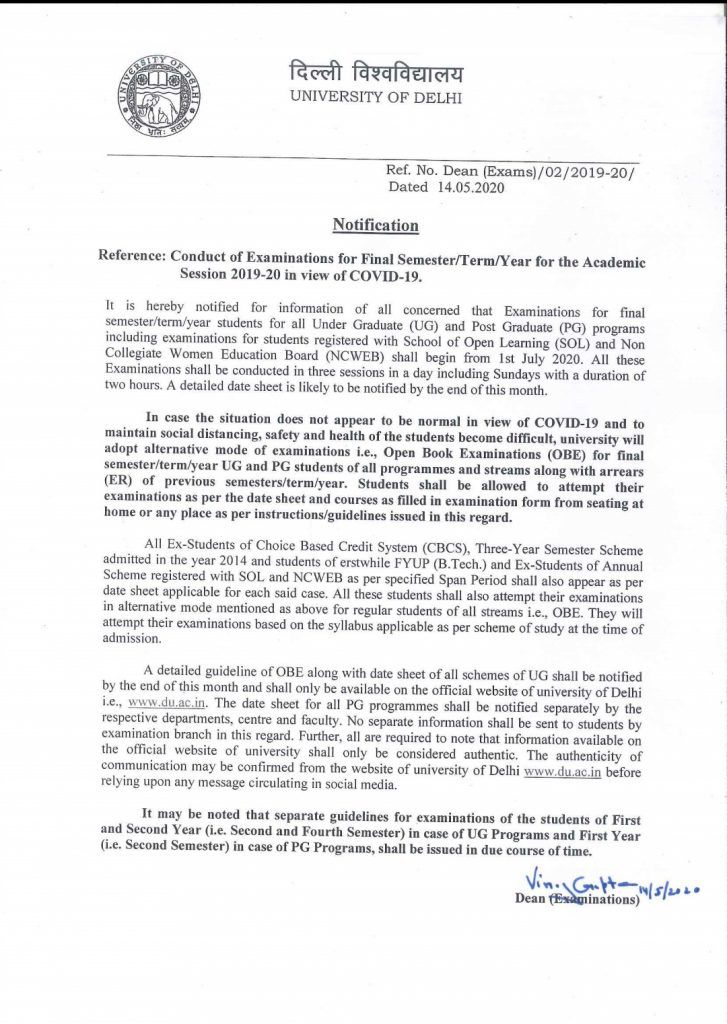
Students allege that the university is tricking them in the name of open book system because most of the students do not have any study material with them.
Arpit Awasthi of Rikhaunapur village in Uttar Pradesh’s Sitapur district is a Physics Honours student with the university’s Kirorimal College.
In a conversation with Gaon Connection, he said: “When it became evident for the lockdown to happen, I had hurriedly made way for my home with only a change of clothes. My books, notes, laptop — everything is in Delhi, and now we are asked to appear in these online exams. Writing this exam is crucial as the marks obtained in this exam have weightage in admission to all the universities, including DU, and in other competitive exams. If we do not fare well in this exam, it may ruin our future and career prospects and prove seeking admission in DU to be the worst mistake of my life.”
For Arpit, internet connectivity is also a major issue which the DU administration has overlooked while deciding upon online examination. He said: “My village receives 4G network with great difficulty so I was not able to attend the online classes even for a day. I have to be awake till two in the night to download the entire study material that has been received in my class group as it is only during the night that the internet has relatively better speed.”
One can imagine if such is the condition in Uttar Pradesh then what would be happening to the students belonging to backward regions in Bihar, Jharkhand, Chhattisgarh, the Northeastern states and states like Jammu and Kashmir and Laddakh operating on 2G, besides Amphan-riddled Odisha and West Bengal.
The university administration had directed its teachers to conduct online classes through Zoom, Skype, Google classroom and other platforms in view of the coronavirus and lockdown. However, due to poor internet connectivity and other reasons, this initiative has failed and more than half of its students could not attend these online classes.
The All India Student Association (AISA) had conducted a telephonic survey of about 1,500 students of DU in which 72% of the students have cited poor internet connectivity as a reason for their inability to attend online classes. Besides, DU Express, an online media portal for the DU students, has conducted a survey in which 75.6% of the students have admitted to not being able to attend the online classes while about 85.5% have opted against the online exams. The survey conducted upon 12,214 students of the university also has revealed that currently, 92.5% of the students are away from Delhi in their homes.
With the help of phone and text messaging Gaon Connection interacted with the students belonging to various states as well as the faculty members of the Delhi University and found a majority of them not in favour of this online examination.
Deepak Tenguriya from Rajasthan’s Bharatpur district questioned: “The university portal that always crashes during the exams and filling up of forms, what is the guarantee that it won’t crash when lakhs of students would upload their answer sheets simultaneously on it?”
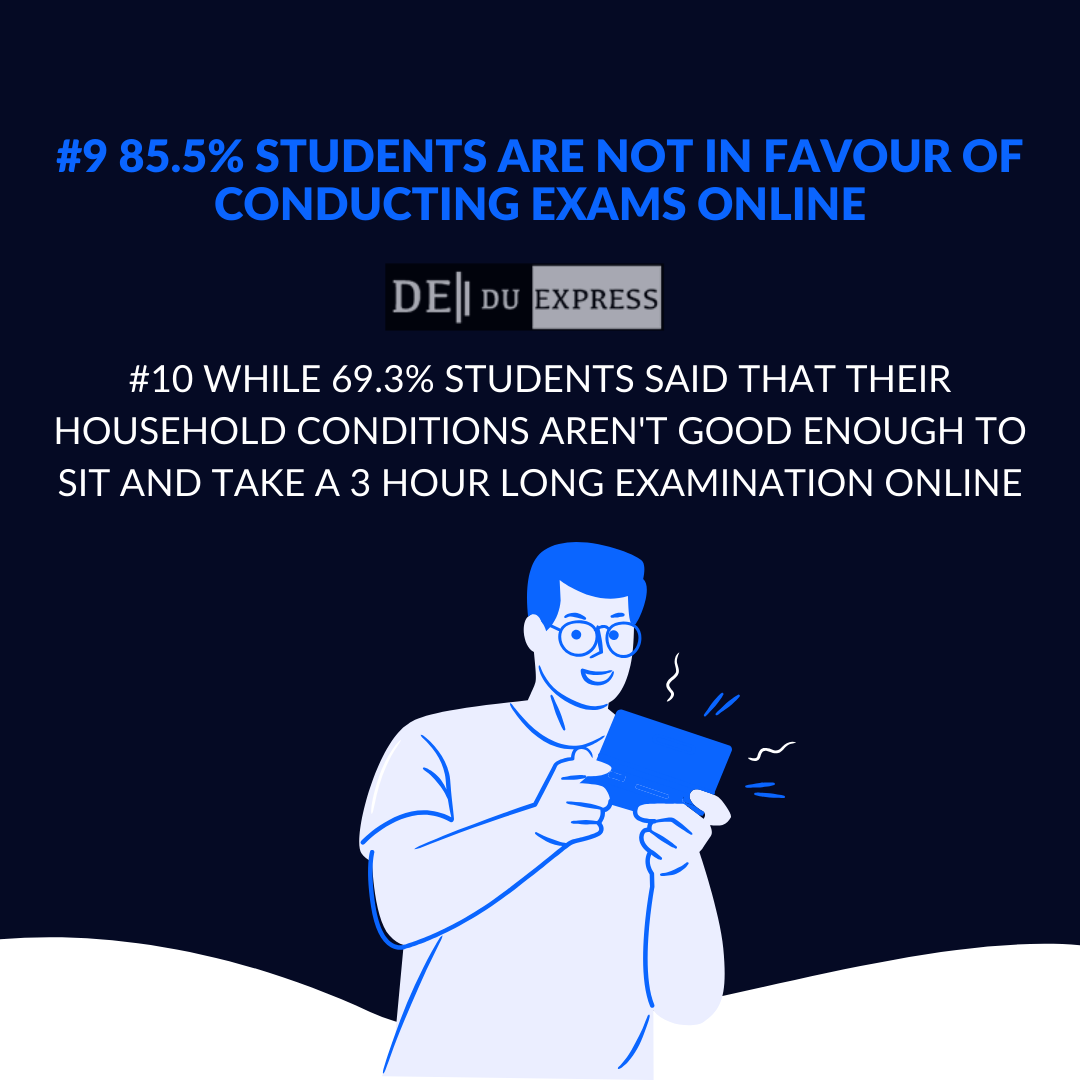
Deepak, a third-year student of Political Science in Atmaram Santan Dharma (ARSD) College, added: “Besides, connectivity is another major issue. Does the university believe all its students to have a stable internet connection and an appropriate and quiet room for giving their exams? If no, then this exam is also pointless.”
Deepak said during the lockdown, teachers had conducted online classes through Zoom and Skype, but due to poor connectivity, the attendance in these classes was not even 30-40%. Even those who were present for the classes could not watch videos or hear properly due to the constant buffering. Due to this, the students had faced great difficulty in understanding several topics. So, in such a situation, is it pertinent to hold online exams?
Deepak’s words are confirmed by some surveys and university teachers. According to a survey conducted by DU Express, 64.3 per cent of students said they did not have a permanent internet connection, which led to 53.8 per cent of students not attending these online classes. There are 19.7 per cent of the students who said that their teachers were not taking online classes, while 46 per cent said that not all teachers were taking online classes, only a few subject teachers were taking proper classes. Although 34.3 per cent of the students admitted that they had attended online class, but it was not enough. Many things were not understood in online classes.
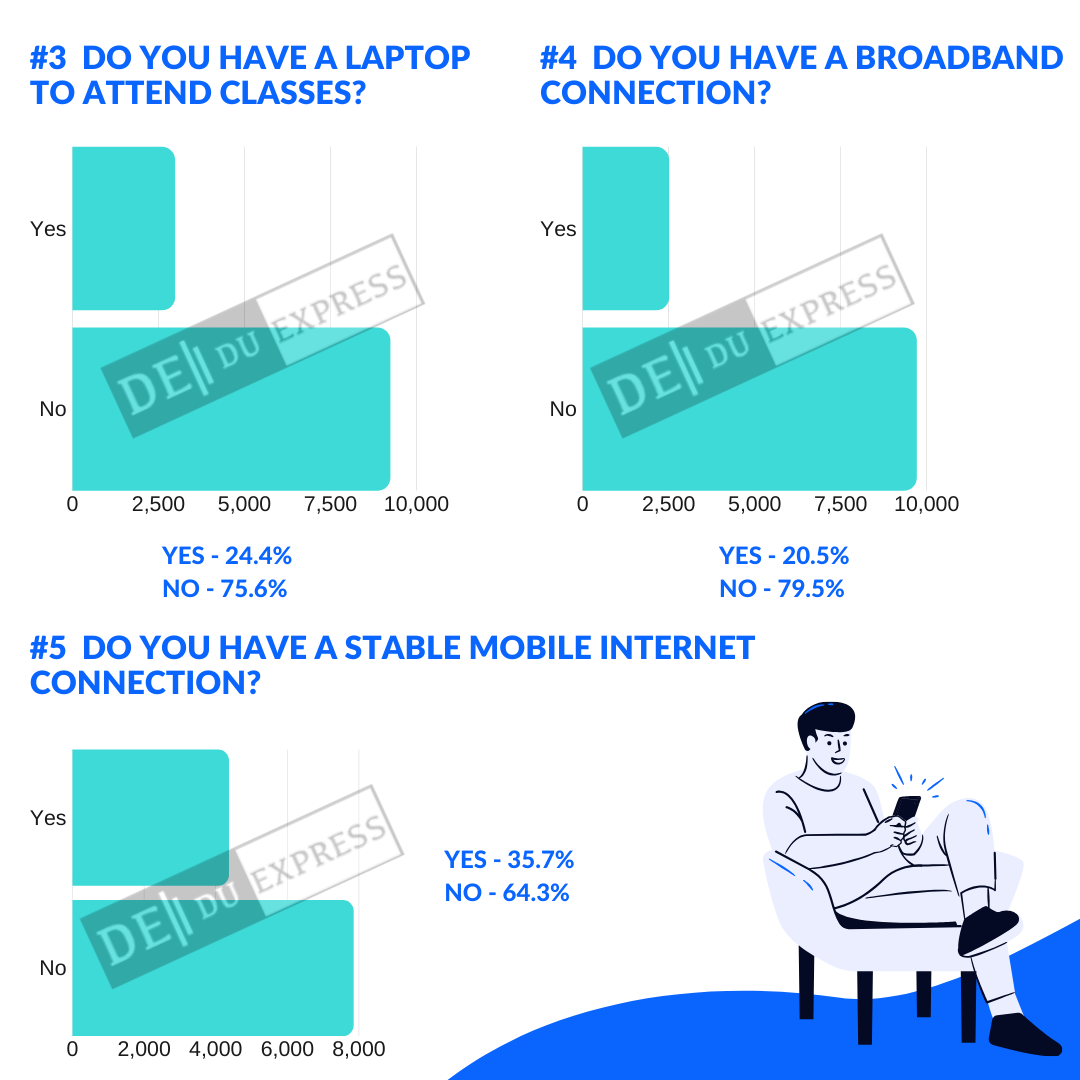
This online open book examination is opposed not only by students, but also by the university teachers. Teachers say the notion of online examination is against the basic inclusive soul of the University of Delhi, which talks about uniform education for children coming from different regions and sections across the country. The online examination will benefit those children who have the benefit of technology, who live in the cities and metros and have adequate resources, including reading material. But those children will be left behind who come from the backward areas and sections of the country to study in Delhi University.
“Online classes can be helpful for students, but it cannot be a classroom alternative,” said Prem Kumar, a professor in the history department at Motilal Nehru College. He added: “The same thing applies for online examination. The examination means evaluating the year-long learning, but the quality evaluation of students under the open book online examination system is not possible.”
Prof Prem Kumar said that he had a lot of technical difficulties in taking online classes during the lockdown. The attendance of students was also below 30 per cent. He somehow managed to complete the syllabus, but also admitted that the quality of teaching that is in the direct classroom could not be imparted in the online class.
What about the visually impaired and other disabled students?
Delhi University has a large number of visually impaired and other disabled students. The sufferings of such students are going to multiply as the university has decided to conduct online examinations. Normally, visually impaired students write their exams with the help of an assistant writer. These Visually impaired students speak and the assistant writers write it in the answer book. For that, they are also given extra time. These assistant writers are usually university students, their classmates or juniors from other departments, who have a proper understanding of the examination pattern and curriculum of the University of Delhi.
But it is very difficult for visually impaired students to manage an assistant writer when most students are at their homes due to the corona crisis. It becomes especially difficult for the students living in the villages because there are very few people who are aware of the rights of the differently-abled. As Vibha Kumari of Patna district of Bihar said: “If there will be an online examination, it will be very difficult for me. Finding a writer or a scribe in the village is a tough task.”
Mohit Pandey, a student of Sanskrit honours (third year) at St Stephen’s College, said it is even more difficult for him and other classmates to find a writer in villages, because while anybody will write Hindi or English, those able to write Sanskrit will usually be quite few in a village.
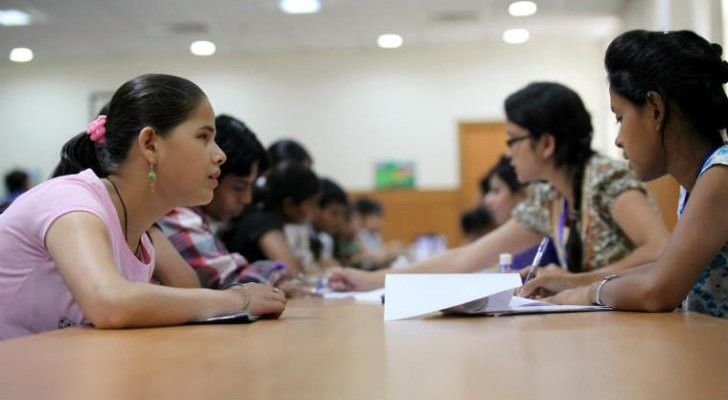
Another major problem for visually-impaired and the other disabled students is the text available to them. Jagdish Chander, a professor of political science at the Hindu College of the Delhi University, pointed out that there are three types of text material available for disabled students – a Braille book, an audio book and an e-book (electronic book) — but the reading material that teachers are providing to the students through online classes is not suitable for disabled students.
He said: “It is also a very difficult task to convert the text material being provided by the teachers into audio or e-books during the lockdown, as the visually impaired students used to do all these with the help of college societies and volunteers. It is even more difficult for visually impaired students of Hindi medium as the text content is already low in Hindi medium and it cannot be converted into audio or e-book with the help of basic software.”
Chander and his fellow professors have also written to the Ministry of Human Resource Development and the vice-chancellor of the university on these problems of visually impaired students, but they have not received any response so far. While the National Federation of Blind (NFB) has also written to the vice-Chancellor of Delhi University regarding the online exam problems for visually impaired students, it has not yet received any response, informed the general secretary and senior Delhi High Court lawyer, SK Rungta.
On the other hand, the Delhi University teachers’ forum — Academia for Action and Development (AAD) — has written to President Ram Nath Kovind opposing the online open book examination. The AAD letter has received the support of 29 heads of the University of Delhi, who have termed the online examination as a unilateral and arbitrary decision.
The letter says that it would be difficult for poor, dalit, adivasi and backward caste students living in the far-flung regions to write online examinations as they do not have the means. Further, the administration took this decision suddenly without consulting the Delhi University Teachers ‘ Association (DUTA) and the Delhi University Students Union (DUSU).
Anxit Dahiya, the president of the Delhi University Students Union (DUSU), said: “The university must give priority to the interests of the most important stakeholders – the students — and their problems should be taken seriously.” He said that students should be provided with more and more options on the mode of examination so that they can choose the options based upon their convenience.
Dr Prem Kumar, the DUTA’s joint secretary and professor at ARSD College, told Gaon Connection over the phone: “I don’t know why the university seems to be in such a hurry to conduct the exam? In most of the universities, there is no talk of any examination yet and promotions are being given to the students on the basis of marks and internal exams of the previous semester. But the Delhi University administration is not ready to accept.”
Dr Prem Kumar indicated that the university also wants to move towards privatisation of education by conducting online examinations. He said: “The government and the university want everything to be online and automated so that they have to spend minimally upon education and its related resources. But what will be the quality in such education, the government should also consider seriously over this point.”
We also tried to talk to the Delhi University administration in this regard, but could not contact them.

